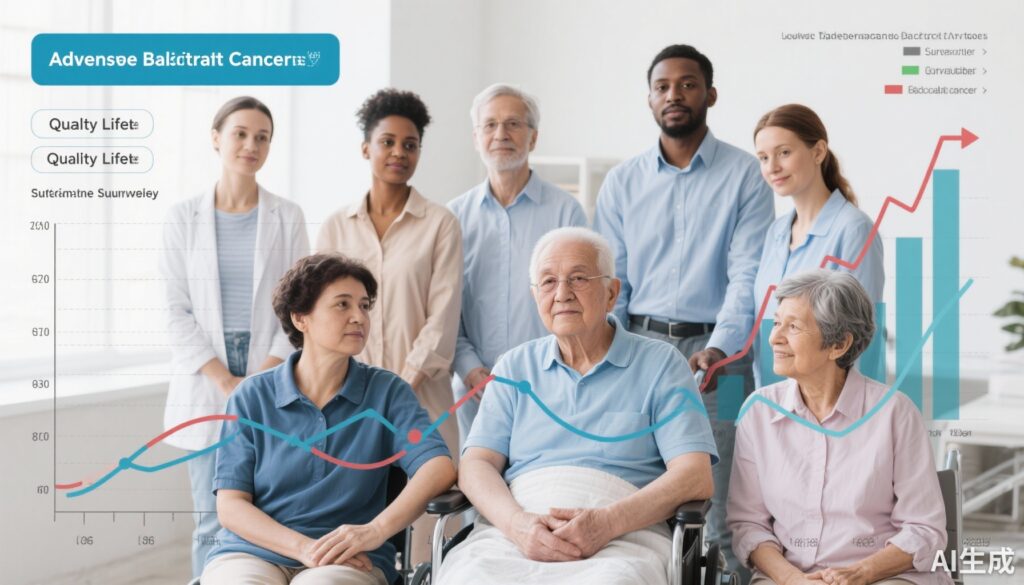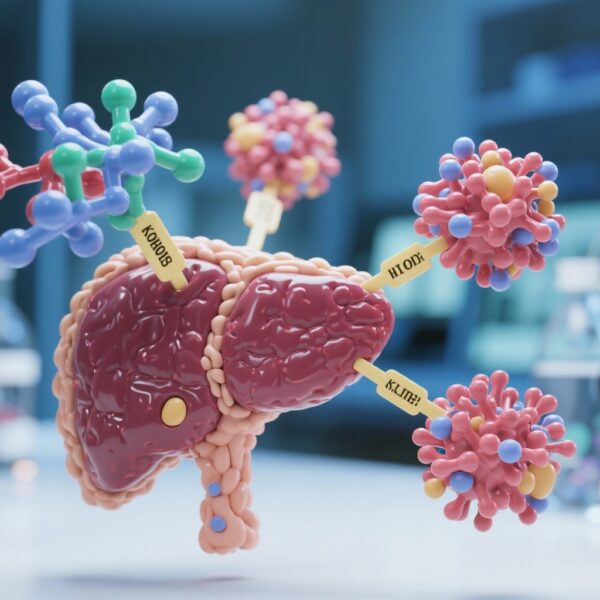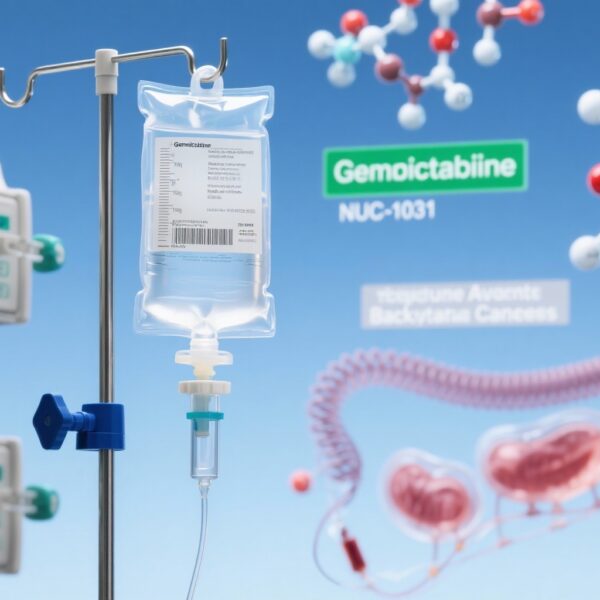Study Background and Disease Burden
Biliary tract cancer (BTC), encompassing cholangiocarcinoma and gallbladder cancer, is a rare but highly aggressive malignancy often diagnosed at an advanced stage due to nonspecific or absent early symptoms. Patients with advanced BTC face a poor prognosis, with limited treatment options historically offering modest survival benefits. In addition to reduced survival, advanced BTC patients frequently experience significant impairments in physical, emotional, and functional well-being, reflected in diminished health-related quality of life (HRQoL). Therefore, treatments that extend survival while maintaining or improving HRQoL are urgently needed.
Study Design
The phase III KEYNOTE-966 trial evaluated the efficacy and HRQoL impact of adding pembrolizumab, a programmed cell death protein 1 (PD-1) inhibitor, to a standard chemotherapy backbone of gemcitabine and cisplatin (GemCis) as first-line treatment for patients with advanced BTC. This double-blind, randomized study enrolled 1,069 participants, with 533 assigned to GemCis plus pembrolizumab and 536 to GemCis plus placebo. The primary clinical endpoint was overall survival, which previously demonstrated a statistically significant improvement in the pembrolizumab arm.
The prespecified HRQoL outcomes, the focus of this analysis, were assessed longitudinally up to week 18 using validated instruments: the European Organisation for Research and Treatment of Cancer (EORTC) Core Quality of Life Questionnaire (QLQ-C30), the disease-specific QLQ-BIL21 module, and the EQ-5D-5L visual analogue scale. HRQoL domains analyzed included global health status/quality of life, physical functioning, role functioning, pain, and jaundice, with changes from baseline compared between treatment arms. Time to confirmed deterioration in these domains was also analyzed using stratified Cox proportional hazards models.
Key Findings
Questionnaire compliance remained high throughout the study, exceeding 87% at all time points up to week 18, ensuring robust data quality. The analysis population consisted of all treated patients who completed at least one HRQoL assessment.
Least squares mean changes from baseline to week 18 in HRQoL domains were comparable between treatment groups. Specifically, key domains such as global health status, physical functioning, and role functioning as measured by QLQ-C30; pain and jaundice symptoms via QLQ-BIL21; and overall health status per the EQ-5D-5L visual analogue scale showed no statistically significant differences.
Additionally, time to confirmed deterioration—a clinically meaningful outcome reflecting sustained patient well-being—did not differ significantly. Median time to deterioration for global health status was not reached in the pembrolizumab arm versus 21.2 months in the placebo arm (hazard ratio [HR] 0.86, 95% confidence interval [CI] 0.70–1.07). For jaundice, median times were not reached in either arm (HR 1.20, 95% CI 0.94–1.54), and for pain, similarly, there were no significant differences (HR 0.79, 95% CI 0.59–1.05).
These HRQoL findings are particularly relevant given the statistically significant and clinically meaningful overall survival benefit conferred by pembrolizumab addition, supporting a dual benefit of prolonged life without detrimental impacts on patient-reported quality of life.
Expert Commentary
The maintenance of HRQoL despite intensified immunochemotherapy is a pivotal advantage in the management of advanced BTC, a disease marked by high symptom burden and poor prognosis. The inclusion of disease-specific instruments such as QLQ-BIL21 enhances the sensitivity in detecting symptom changes pertinent to BTC, reinforcing confidence in these findings.
While the trial demonstrated comparable HRQoL outcomes between arms, limitations include the assessment window capped at week 18; longer-term HRQoL trajectories remain to be elucidated. Additionally, given the complexity of BTC’s clinical heterogeneity, real-world HRQoL data would complement these findings to validate generalizability.
Mechanistically, pembrolizumab’s ability to augment antitumor immunity without increasing systemic toxicity likely underpins these quality of life outcomes. This aligns with growing evidence supporting immune checkpoint inhibitors as tolerable options that potentially improve survival without compromising patient-centric outcomes.
Conclusion
The KEYNOTE-966 trial results underscore that adding pembrolizumab to standard gemcitabine and cisplatin chemotherapy significantly improves overall survival in advanced BTC without compromising health-related quality of life. These data advocate for adopting this combined immunochemotherapy regimen as a new first-line standard, addressing both survival and patients’ holistic well-being. Future research should explore sustained HRQoL beyond 18 weeks and examine biomarkers predicting both clinical and quality of life responses to optimize personalized treatment strategies.
References
Yoo C, Ueno M, Klümpen HJ, Kelley RK, Vogel A, Furuse J, Ren Z, Yau T, Chan SL, Ozaka M, Oh SC, Gu S, Park JO, Valle JW, Edeline J, Kim JG, Kamble S, Norquist JM, Yu L, Malhotra U, Finn RS. Health-related quality of life in participants with advanced biliary tract cancer from the randomized phase III KEYNOTE-966 study. J Hepatol. 2025 Sep;83(3):692-700. doi: 10.1016/j.jhep.2025.03.019. Epub 2025 Mar 27. PMID: 40154623.
Valle JW, Lamarca A, Goyal L, et al. New horizons for precision medicine in biliary tract cancers. Nat Rev Clin Oncol. 2020;17(9):557-568. doi:10.1038/s41571-020-0383-0
Marabelle A, Fakih M, Lopez J, et al. Association of tumour mutational burden with outcomes in patients with advanced solid tumours treated with pembrolizumab: prospective biomarker analysis of the KEYNOTE-158 study. Lancet Oncol. 2020;21(10):1353-1365. doi:10.1016/S1470-2045(20)30445-9



